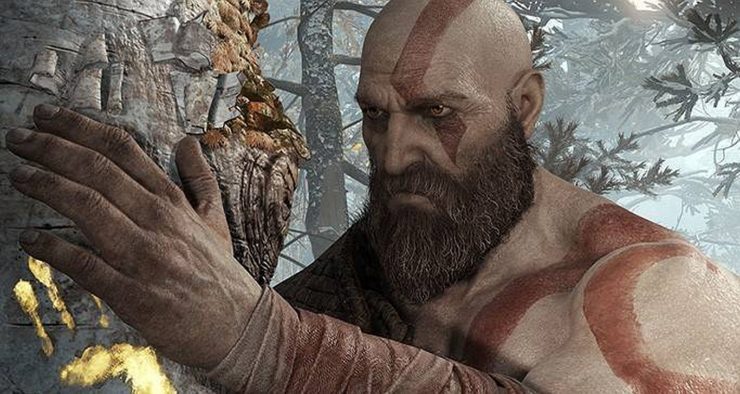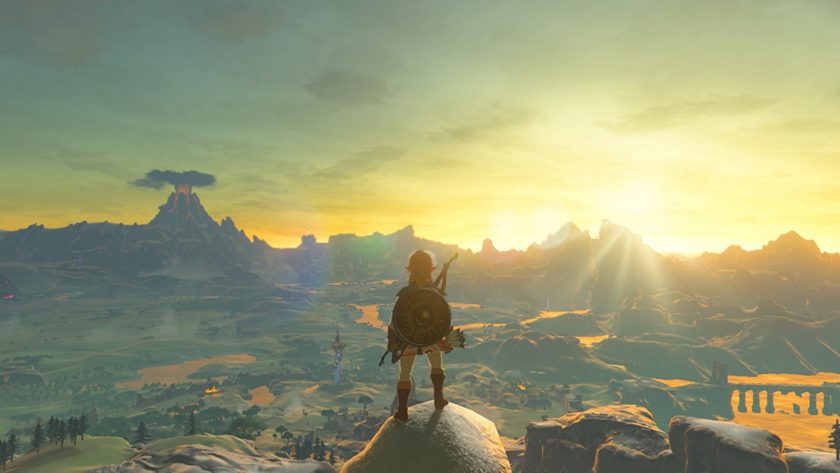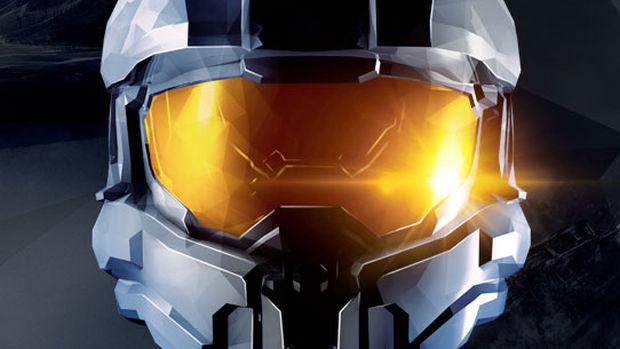
The upcoming God of War represents such a break from what games in the series have been like until now. It swaps out the traditional, fixed camera of the previous games for an over the shoulder one, it mellows down angry protagonist Kratos for a more contemplative, considered one, it gives him a son who is always accompanying him through the game, it switches out the Greek mythology setting for a Norse mythology one.
But arguably the biggest changes are not the superficial or surface ones, but the changes made to the game’s mechanics and structure itself. While the previous God of War games were streamlined linear action games with some puzzle elements, the new title seems to have gone and reinvented the series as an action RPG, with equal emphasis on gearing out and stats, exploration, and of course, combat. Kratos and enemies have levels, you have skill trees and gear, there is a massive game world that invites exploration (and rewards it with high tier loot), and even combat has been slowed down, taking, it seems, some cues from Souls games.
The miraculous thing here is that, through all of this, God of War still feels like God of War. The new game has reinvented the very core of the franchise, and on paper, it sounds like it’s basically a new IP masquerading as God of War– but just a few minutes with the new game, and you are comfortably settled into the old groove again. It becomes clear that, in spite of just how different God of War is from its predecessors, it is still unmistakeably a game born from the same DNA as those- just reimagined in every particular.
"It becomes clear that, in spite of just how different God of War is from its predecessors, it is still unmistakeably a game born from the same DNA as those- just reimagined in every particular."
This is a very interesting balancing act, and it is one that any long running franchise that wants to stay successful and relevant has to pull off at some point or the other in its life. Nintendo, of course, has become a master of this juggling act of reinvention and familiarity- while the company famously sticks with its established brands and franchises, it reinvents them dazzlingly with each new game, such that they always feel fresh, but also comfortingly familiar (along the way, they also end up becoming among the greatest games ever made). Nintendo has done this with games like Super Mario Bros. 3, Super Mario 64, Super Mario Galaxy, Super Mario Odyssey, The Legend of Zelda: Link to the Past, The Legend of Zelda: Ocarina of Time, The Legend of Zelda: Majora’s Mask, The Legend of Zelda: Breath of the Wild, Super Metroid, Metroid Prime, and on and on the list goes. The reason that Nintendo’s franchises continue to remain popular is because they are not just high quality, they are also fresh and familiar, both.
Nintendo isn’t the only other company that does this, either—Capcom, for instance, has pulled off this juggling act with Resident Evil 4 and 7, or with Monster Hunter World. Konami and Hideo Kojima used to do it with every new Metal Gear game. Assassin’s Creed did it to rousing success with Origins last year. Persona completely reinvented itself with Persona 3. Every new Final Fantasy game might as well be a new IP—the common element here is that these are all long running franchises that have managed to retain a high level of quality and success throughout.
The common thing here across all these examples—starting from God of War, and through all the other ones named—is that these franchises have managed to reinvent themselves to meet changing demands and expectations without losing the core of what made them so unique and beloved to begin with. And this, right here, is a balancing act that thus far Microsoft has been unable to pull off.
"Nintendo, of course, has become a master of this juggling act of reinvention and familiarity- while the company famously sticks with its established brands and franchises, it reinvents them dazzlingly with each new game, such that they always feel fresh, but also comfortingly familiar (along the way, they also end up becoming among the greatest games ever made)."
The conversation is important in context of Microsoft’s first party efforts because they seem to rely on a franchise driven mode for their output, with the bulk of their budget, development, and marketing resources reserved for Halo, Gears, and Forza games. And with their persistent failure to keep audiences excited on a continued basis with their flagship franchises, or to attract newer players to them—Halo and Gears have both suffered massive declines in interest (characterized by lower critic scores and sales numbers), while Fable’s decline was so precipitous that the franchise was cancelled and Lionhead shuttered entirely—it means their entire first party lineup as a whole takes a beating.
The reason, of course, is simple—Microsoft has erred too much either in the side of being too safe or conservative with its franchises, or in trying to chase trends so much that they lost the core essence of what made their franchises special to begin with. On the former side, we have Gears of War– Gears 4 was a good game, but it hewed far too close to the original trilogy, failing to account for the passage of time since, and how player expectations may have changed accordingly. On the latter end, we have something like Halo, which became so interested in trying to chase wider market trends like Call of Duty that the franchise fundamentally lost what had made it stand out and special to begin with with Halo 4 and 5.
This is a problem Microsoft needs to address if it wants to rely on a franchise driven model for its first party portfolio (which, by all accounts, it does, given its tendency to rely on existing franchises for tent pole releases). While Microsoft has also started diversifying and looking at investing in new IPs (there are separate problems with how they are tackling that which will have to be addressed some time in the future), the key components of its first party games is its established franchises, and iterations in those franchises—therefore, if Microsoft cannot reinvent its series while keeping their core identities intact, it will keep bleeding its audience until there is none, or at best very little, left. It is no coincidence that Microsoft’s biggest hit of the generation, Forza Horizon 3, is the one game that managed to act as a reinvention of its franchise while also staying true to its essence.
"Microsoft has erred too much either in the side of being too safe or conservative with its franchises, or in trying to chase trends so much that they lost the core essence of what made their franchises special to begin with."
Microsoft has erred too much either in the side of being too safe or conservative with its franchises, or in trying to chase trends so much that they lost the core essence of what made their franchises special to begin with.
And yes, this is, in the end, a problem that of the three console manufacturers, only Microsoft faces—Nintendo, as noted above, is a master at keeping its IP relevant with deft reinvention, and also invests in new experiences and IP by the side. Sony generally invests in new IP, rather than relying on tent pole franchises, and where it relies on tent pole franchises, it can reinvent them well, as God of War demonstrates. Microsoft… hasn’t shown it can do either thing well.
Hopefully, in the coming months, it proves that it can do it just as well as anyone else. All eyes are on them this E3.
Note: The views expressed in this article are those of the author and do not necessarily represent the views of, and should not be attributed to GamingBolt as an organization.
















